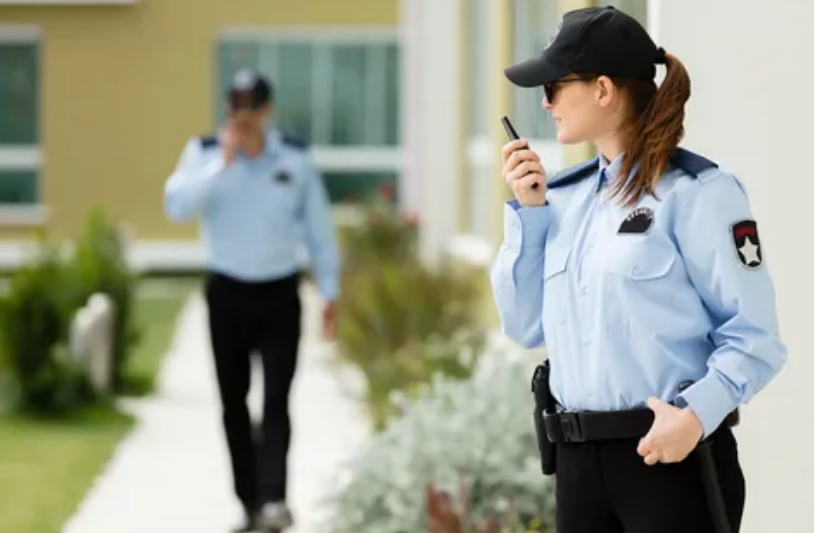In the world of modern security, technical tools like surveillance systems and alarm devices are essential—but the most valuable asset is often a well-trained security professional with strong communication and interpersonal skills. One of the most critical of these is the ability to de-escalate potentially volatile situations. For providers of Unarmed Security Services in Sacramento, CA, de-escalation techniques are not just a bonus—they are a core skill set that can make all the difference in maintaining peace, safety, and professionalism in a wide range of environments.
Understanding De-escalation: A Core Security Skill
De-escalation is the process of reducing the intensity of a conflict or potentially violent situation through calm communication, empathy, and strategic behavior. For security professionals, especially unarmed ones, this skill allows them to handle tense encounters without the need for force. The goal is to resolve issues peacefully and prevent escalation into aggression or violence.
In public settings such as shopping centers, schools, residential communities, and office complexes, unarmed security officers are often the first line of defense. Their ability to read body language, use non-threatening posture, and speak in a calm, clear tone can de-escalate situations before they become dangerous. This capability not only protects the public but also minimizes legal liabilities for property owners and employers.
Why De-escalation Matters More for Unarmed Security Officers
Unarmed security officers do not carry lethal weapons and therefore must rely heavily on their communication and conflict resolution skills. Their presence is meant to deter crime and promote order rather than engage in physical confrontations. De-escalation becomes their primary defense mechanism.
In high-stress environments, people may act irrationally or emotionally. A security officer who can remain composed and guide individuals away from conflict with empathy and authority provides immense value. They protect not only physical property but also the emotional well-being of everyone in the vicinity.
Key De-escalation Techniques Used by Security Personnel
Security officers use a variety of techniques to de-escalate conflicts. Some of the most effective methods include:
1. Active Listening
By giving individuals a chance to speak and feel heard, officers reduce tension. Acknowledging concerns—even if they cannot be resolved immediately—often calms people down.
2. Maintaining Calm Body Language
Non-verbal cues can significantly influence how a situation unfolds. Keeping hands visible, maintaining a relaxed stance, and avoiding sudden movements can reduce perceived threats.
3. Using a Calm, Respectful Tone
Raising one’s voice can escalate tensions. Skilled security professionals know how to speak clearly, firmly, and respectfully—even when others are shouting.
4. Setting Boundaries Politely
Rather than issuing demands, officers can set expectations with phrases like “Let’s work together to solve this,” or “I understand your frustration, but I need you to stay calm so we can resolve this safely.”
5. Avoiding Power Struggles
Trying to dominate or “win” an argument with a member of the public rarely ends well. De-escalation involves guiding people back to cooperative behavior, not humiliating them.
6. Offering Choices and Control
Giving individuals a sense of control—such as offering options—can help them feel empowered and less defensive. For example, saying, “Would you prefer to wait here or speak with a manager inside?” gives them agency.
Training and Continuous Development
Security companies that invest in de-escalation training are better equipped to protect both people and property. These training programs often include:
- Scenario-based role-playing
- Cultural awareness and bias training
- Mental health and crisis intervention techniques
- Legal education on the appropriate use of force
- Stress management for security officers
In Sacramento, where unarmed security teams frequently operate in public-facing roles, ongoing training ensures that officers stay prepared for a wide variety of scenarios. These programs not only enhance safety but also contribute to a more professional and respected security industry.
Benefits of De-escalation for Clients and Communities
De-escalation doesn’t just benefit security professionals—it also positively impacts clients, residents, and the wider community. Here’s how:
1. Reduced Risk of Injury or Lawsuits
Peacefully resolved conflicts mean fewer chances of physical altercations and associated legal issues.
2. Improved Public Image
Clients who employ security services that emphasize respectful communication and conflict resolution are seen as responsible and community-focused.
3. Enhanced Client Satisfaction
Businesses and property managers report higher satisfaction when security personnel are seen as approachable and capable rather than aggressive or standoffish.
4. Safer, More Comfortable Environments
People feel more at ease knowing that the security staff is trained to protect them without resorting to force unnecessarily.
Challenges Security Officers Face During De-escalation
Despite the advantages, de-escalation is not always easy. Officers may face:
- Aggressive individuals under the influence of drugs or alcohol
- Mental health crises that require specialized intervention
- Language barriers or cultural misunderstandings
- Group dynamics, where peer pressure escalates conflict
For this reason, it’s important for security companies to provide not just initial training but also ongoing support, including supervision, mental health resources, and refresher courses.
Choosing the Right Security Provider
When selecting unarmed security services, clients should look for companies that emphasize professionalism, emotional intelligence, and training in non-violent conflict resolution. Asking about de-escalation techniques during the hiring process can be a valuable way to assess a provider’s commitment to safety and community engagement.
Conclusion
De-escalation is more than a buzzword—it’s a vital skill in modern security roles, especially for professionals providing Unarmed Security Services in Sacramento, CA. As public expectations shift toward safety solutions that are effective yet humane, de-escalation will continue to be one of the most crucial components of a successful security strategy. Investing in these skills means investing in safer environments, stronger community relationships, and a more professional image for businesses and residential areas alike.
